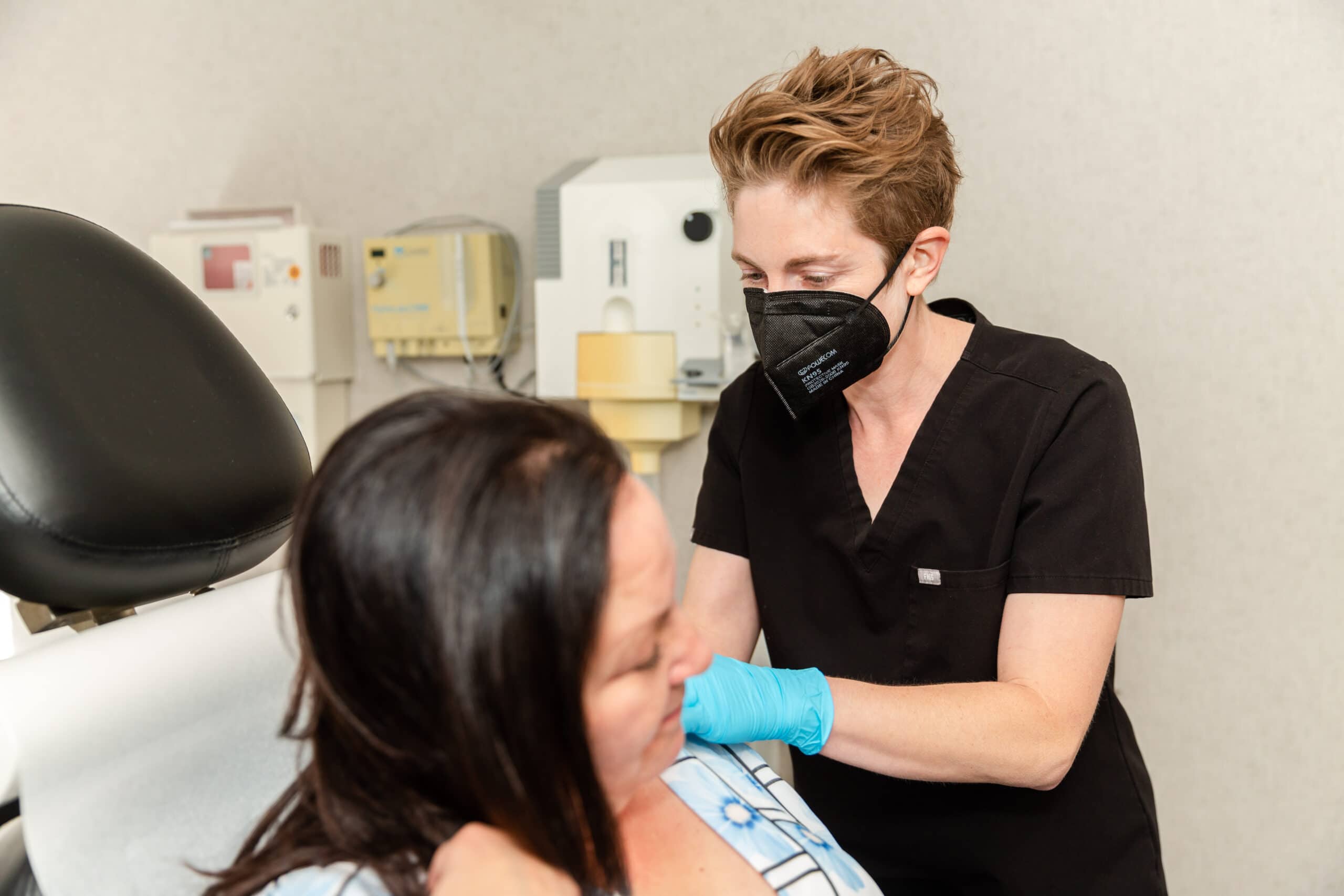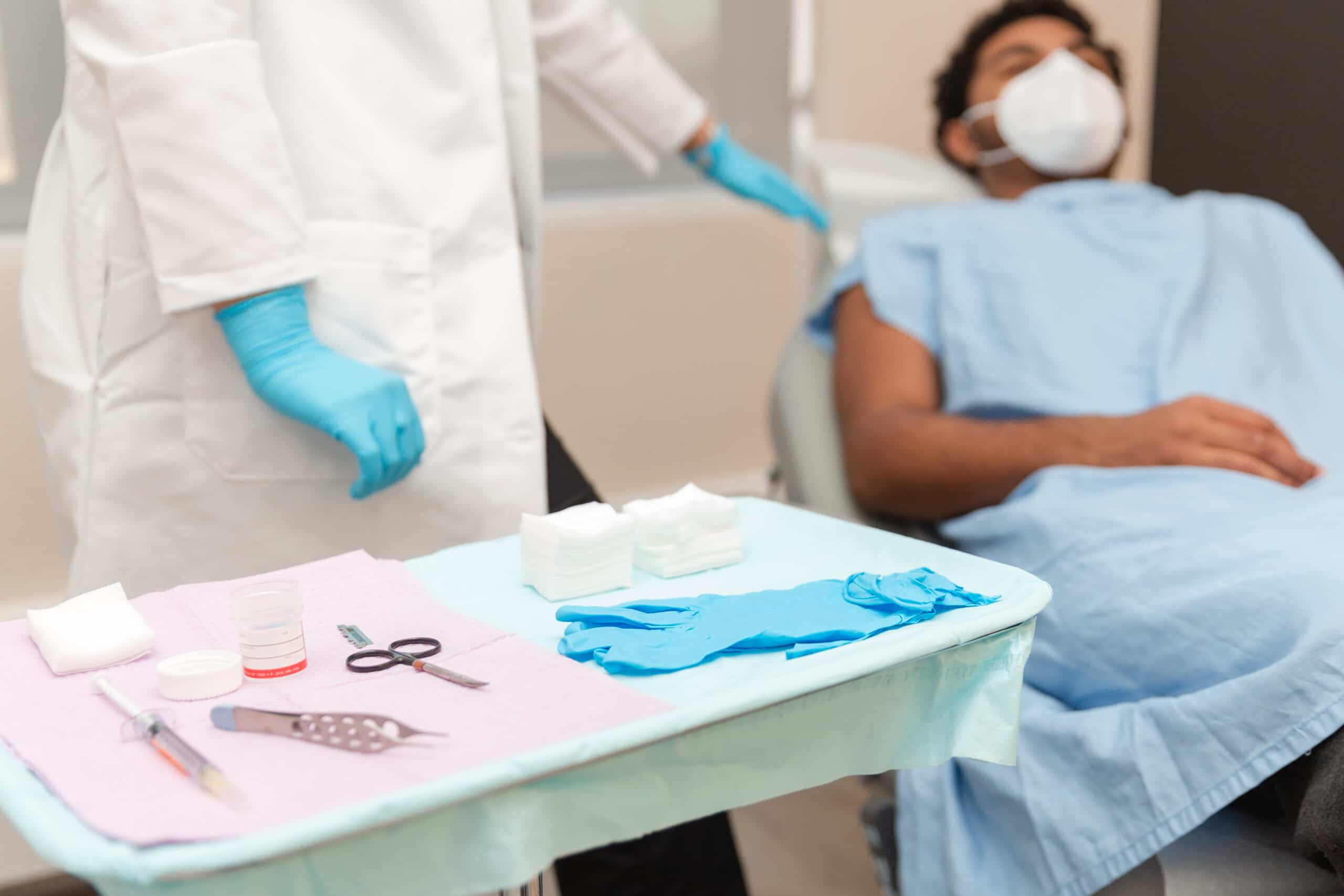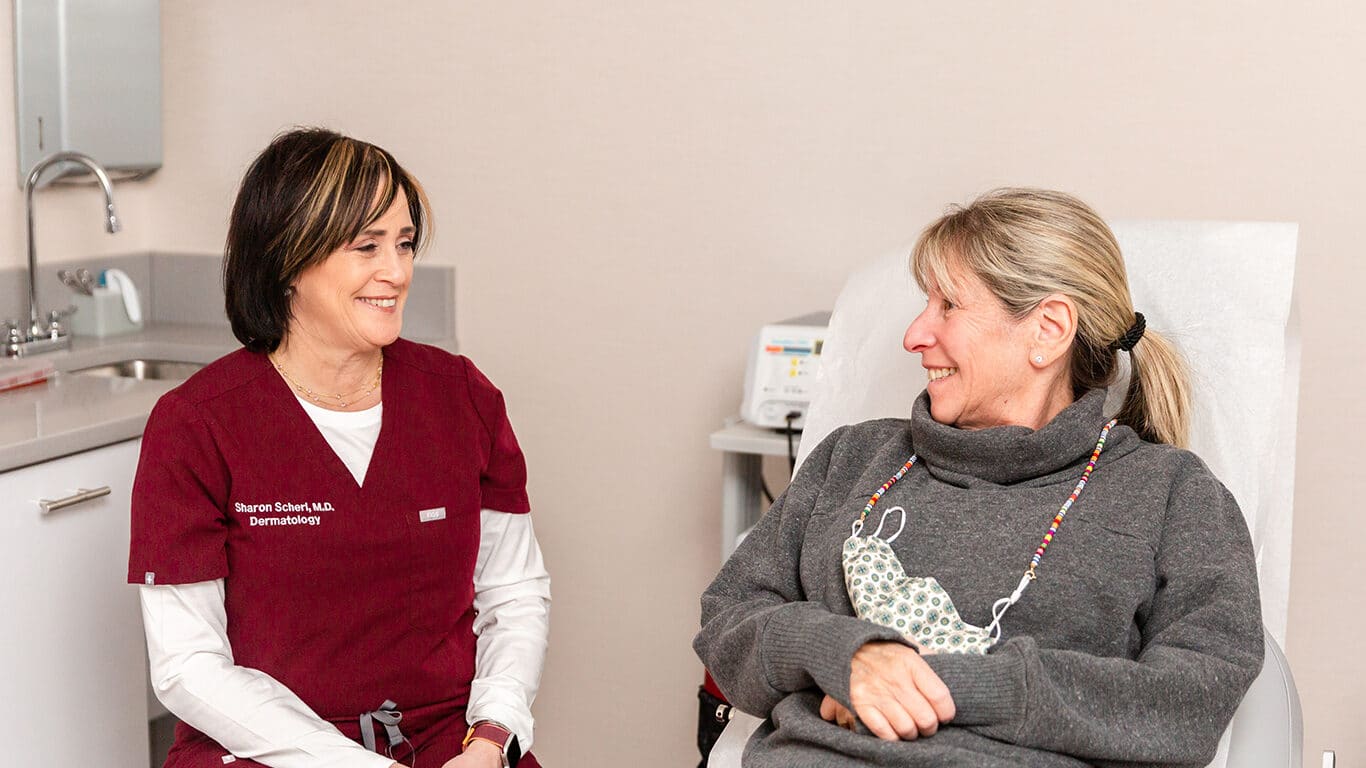
Molluscum Contagiosum
Molluscum (muh-luhs-kum) contagiosum (kən-tā-jē-ō-səm) is a common skin disease caused by a virus that easily spreads from person to person.
People can get molluscum by sharing towels and clothing. Wrestlers and gymnasts may get it from touching infected mats. Skin-to-skin contact also spreads the virus. Often the only sign of molluscum is pink or flesh-colored bumps on the skin. These bumps can appear anywhere on the skin.
Scratching or picking at these bumps can spread the virus from one part of your body to another.
Most people get about 10 to 20 bumps on their skin. If a person has a weakened immune system, many bumps often appear. Individuals with AIDS can have 100 or more bumps.
Whenever you can see the bumps on the skin, molluscum contagiosum is contagious.
Molluscum Contagiosum Treatments
Whenever you can see the bumps on the skin, molluscum contagiosum is contagious.
Treatment helps to prevent the virus from:
- Spreading to other parts of your body.
- Spreading to other people.
- Growing out of control in people who have a weakened immune system.

Treatment, however, may not be best for a young child. Treatment can have unwanted side effects for a young child. And the bumps often go away without treatment. Although the bumps often go away without treatment, most people should be treated. And people who have a weakened immune system should definitely get treatment. The bumps will not go away without treatment if a person has a weakened immune system. There are many treatment options. The treatment your dermatologist prescribes will depend on your age, health, where the bumps appear on your body, and other considerations. Treatments that a dermatologist can perform in the office to treat molluscum contagiosum include:
- Cryosurgery: The dermatologist freezes the bumps with liquid nitrogen.
- Curettage: The dermatologist may use a small tool called a curette to scrape the bumps from the skin.
- Laser surgery: A dermatologist uses a laser to target and destroy the bumps. This can be an effective treatment for people who have a weakened immune system.
- Topical (applied to the skin) therapy: Your dermatologist can apply various acids and blistering solutions to destroy the bumps. These work by destroying the top layers of the skin. Tricholoracetic acid is often used to treat people who have a weak immune system and many bumps. When a patient has many bumps or large bumps, a dermatologist may need to repeat the procedure every 3 to 6 weeks until the bumps disappear. These procedures cause some discomfort.
Medicines that your dermatologist may prescribe for you to use at home include the following:
- Imiquimod: This medicine is applied to the bumps. Imiquimod helps your immune system fight the virus. This is strong medicine. It also is used to treat stubborn warts and some skin cancers.
- Retinoid or antiviral medicine applied to the skin: Patients apply this medicine to the bumps as instructed.
While treating the bumps, it is normal for new bumps to appear as others fade. Molluscum contagiosum remains contagious until all of the bumps go away. If a person with a healthy immune system opts not to treat the bumps, the bumps will eventually go away on their own without leaving a scar. After treatment, a person may get new bumps for as long as 6 months. Most people have complete clearing in 2 to 4 months. If a person has AIDS or another disease that weakens the immune system, the bumps will not go away without treatment — and the bumps can be a challenge to treat. Dermatologists often combine treatments to offer these patients some clearing. Complete clearing may not be possible.
LEARN MORE AT YOUR CONSULTATION IN ENGLEWOOD CLIFFS, NJ TODAY
Molluscum contagiosum may disappear on its own, but often requires professional treatment. For more information, contact our office today to schedule your consultation.
OTHER Skin Conditions
Acne
Acne is the most common skin condition in the United States. Although it’s common, accurate information about acne can be scarce.
Acne Cysts
An acne cyst forms when the pore fills with dead skin cells oil, and bacteria. A cyst goes deep into the skin and can hurt.
Actinic Keratosis
An actinic keratosis or AK is a rough, dry, scaly patch or growth that forms on the skin. An AK forms when the skin is badly damaged by ultraviolet (UV) rays from the sun or indoor tanning.
Alopecia (Hair Loss)
Millions of people experience hair loss. Some people see their hair re-grow without doing anything. Others need treatment for their hair to re-grow. Sometimes, hair will not re-grow.
Atopic Dermatitis/Eczema
This is a common skin disease in children. Children often get atopic dermatitis (AD) during their first year of life. If a child gets AD during this time, dry and scaly patches appear on the skin.
Atypical Mole (Dysplastic)
This type of mole can look like melanoma. It is not melanoma. But you have a higher risk of getting melanoma if you have certain risk factors.
Basal Cell Carcinoma
Basal cell carcinoma (BCC) is the most common form of skin cancer. More than two million cases of this skin cancer are diagnosed in the United States each year.
Bed Bugs
Bedbugs are tiny insects that feed on human blood. They hide in dark places close to where humans sleep and usually crawl out to feed while people are fast asleep.
Dry Skin
Dry skin is common. It can occur at any age and for many reasons. Using a moisturizer often helps repair dry skin.
Eczema
Eczema is a word that means irritated skin. Doctors don’t really know why some kids and adults get eczema, and others don’t. They think it might happen for a variety of reasons.
Thousands of People in the Metro Area Trust Scherl Dermatology
CONTACT US
Scherl Dermatology
Englewood Cliffs, NJ 07632
Same-Day Appointments Now Available


CONTACT US
Scherl Dermatology
140 Sylvan Ave. Suite 302,
Englewood Cliffs, NJ 07632
Same-Day Appointments Now Available
Scherl Dermatology
©2024 Schweiger Dermatology Group. All Rights Reserved. Privacy Policy | The information available on this website is provided for informational purposes only. This information is not intended to replace a medical consultation where a physician's judgment may advise you about specific disorders, conditions and or treatment options. We hope the information will be useful for you to become more educated about your healthcare decisions. If you are vision-impaired or have some other impairment covered by the Americans with Disabilities Act or a similar law, and you wish to discuss potential accommodations related to using this website, please contact us at 201.568.8400 .

